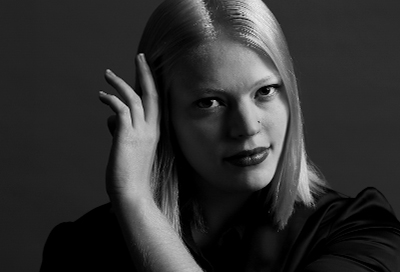
NIDA News spoke with graduating student Ally Burnham about becoming a playwright and her recent international field trip.
How did you come to study at NIDA?
I think, like most creative arts students, I had the natural inclination to gravitate towards the musical and dramatic classes during my schooling, and it was during my HSC year that I had to ask myself ‘is this just a hobby or am I going to make this my life?’
Straight out of high school my English Extension 2 play allowed me access to a Sydney Theatre Company young playwrights program, which I believe was what spurred myself into taking my own writing seriously.
I completed a Bachelor of Film and Screen Media at Griffith Film School and then applied to film school with the notion that I enjoyed script writing the most, but wanted to try my hand at all the technical aspects behind the camera. Film school allowed for many wonderful opportunities. During those three years I racked up my first feature film writing credit with the indie, comedy-gangster film Nice Package. I also won a national young filmmakers competition to work with NIDA, Samsung and Baz Luhrmann writing a screenplay for a short film, The Pilgrim Report which was screened at the Sydney Opera House as part of its 40th anniversary celebrations. For my graduation project I was able to write and direct a sci-fi short, 2.0 which is currently enjoying a fruitful festival run, having been accepted into its seventh festival.
However, at the end of it all I stepped out of film school declaring that writing was still my passion, and after such an enjoyable experience with NIDA and my short film, I then applied to NIDA’s Master of Fine Arts (Writing for Performance) under the guidance of Stephen Sewell.
Have you enjoyed the course so far?
I don’t think it’s an exaggeration to say that I feel like a completely different writer coming out the other end of this course. Over this year I have been exposed to various new ways of approaching and thinking about my craft, considering myself as a creative individual with a voice, what my place and role is as a writer, not only in the arts community but in the wider society, and what my work can achieve.
Beyond the opportunity to write a graduate work this year and hone my skills, I have been inspired to keep on creating more work across various platforms and genres, and have been given the confidence and support to follow through with it. I can easily say that what I have enjoyed the most has been the opportunity to meet and work with other wonderful creatives and form friendships and working relationships which will last well after we leave the walls of NIDA.
What is your favourite topic to write about?
This year my graduate work was a six part television miniseries titled de Havilland Rose. A period drama set on the home front of World War II, it focuses on the lives of the women back home as they learn to cope with the sudden absence of the men in their lives and the freedom and responsibilities that have replaced them.
This story came from my desire to create the roles and stories I wasn’t seeing represented in mainstream media. It has always been a pet-peeve of mine to see a large ensemble cast that would only have one female character � a character which suddenly has to represent all women and be identifiable to all, narrowing our already small range to choose from for role models. This project was my answer to that � that female characters can be heroes as well as villains, and can come in all different shapes, sizes and personalities.
But is this my favourite topic to write about? Before this piece I had a very strong background in writing sci-fi, and the stories weren’t thematically focused on female representation in the same way as de Havilland Rose. So what do period pieces and science fictions have in common? Over the course of this year I’ve worked out that ultimately I am a world builder. I love the experience and joy of throwing myself into a dramatic question that allows me to create the societies, the cultures and characters that inhabit them from the ground up. Writing for the past was just as imaginatively challenging as writing for the future had been, and getting my imaginative cogs moving is the best part of the process.
Tell us about your international field trip earlier this year?
As a part of our NIDA course work, the writing students are lucky enough to have the opportunity to travel to Scotland for the Edinburgh International and Fringe Festivals. While there, we were exposed to an incredible variety and to a sheer volume of theatrical experiences. As someone with a screenwriting background, I was more than happy to throw myself into the atmosphere of a city that is alive with the love of theatre for two weeks and witness the diversity of options and possibilities available to us when writing for the stage. Robert Lepage’s 887 was a hauntingly beautiful piece and is something I’m still thinking back over, after well and truly returning home.
I’ll admit the trip brought out my competitive side � I was inspired while over there to start working on my own play, and it is a play that has turned into my next large project. I have Edinburgh to thank for turning me into a playwright.
What are your plans after graduation?
Write, write, write, write. Leaving film school, I wasn’t convinced being a full-time writer was an option allowed to me. However attending NIDA has changed my mind on that front. A full-time writer is what I am and it is what I am going to be. I don’t think I would have had the perseverance to contemplate it as an option if it wasn’t for the encouragement of the NIDA staff and my fellow writers.
I have been lucky enough to line up several meetings across Sydney with production studios interested in reading de Havilland Rose. Thinking beyond that, apart from working on my next piece, discussions to develop feature film treatments with producers I have worked with in the past now have my time and attention. It’s all about short term goals at the moment, writing and developing from project to project. And I’m enjoying every moment of it.
Photography by Lisa Maree Williams.

